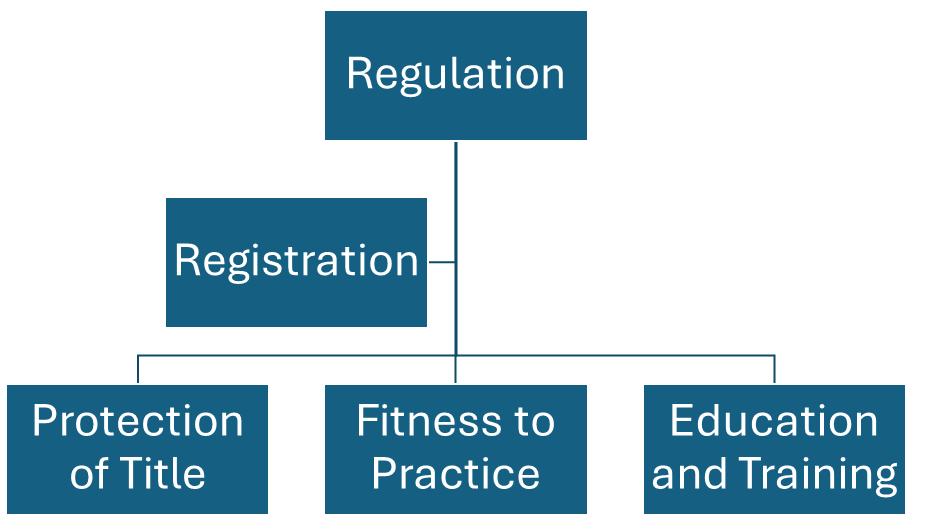Register as Critical Instrument in the Regulation of Built Environment Professions: A QDA of Institutional Frameworks for Practice
Main Article Content
Article Details
References
[1]Keith M. Macdonald, ‘Social closure and occupational registration’, Sociology, 19. 4 (1985), pp. 541-556. https://doi.org/10.1177/0038038585019004004
[2]Amitai Etzioni, ‘The capture theory of regulations—revisited’, Society, 46 (2009), pp. 319-323. https://doi.org/10.1007/s12115-009-9228-3
[3]Garoupa, Nuno, Regulation of Professions in the Us and Europe: A Comparative Analysis (August 2004). Available at SSRN: https://ssrn.com/abstract=640502 or http://dx.doi.org/10.2139/ssrn.640502
[4]Sauro Mocetti, ‘Dynasties in professions and the role of rents and regulation: Evidence from Italian pharmacies’, Journal of Public Economics, 133 (2016), pp. 1-10. https://doi.org/10.1016/j.jpubeco.2015.11.001
[5]Reed Neil Olsen, ‘Regulation of medical professions’, In Encyclopedia of Law and Economics, (Edward Elgar Publishing Limited, 1999)
[6]Danny Myers, Construction economics: A new approach, (Routledge, 2004).
[7]Ayman Ahmed Ezzat Othman, ‘An innovative protocol for improving the ethical behaviour of the quantity surveying profession in South Africa’, International Journal of Construction Management, 12.3 (2012), pp. 43-62. https://doi.org/10.1080/15623599.2012.10773194
[8]B. K. Monteiro, G. Masiero, and FR de Souza, ‘Corruption in the construction industry: a review of recent literature’, International Journal of Construction Management, 22. 14 (2022), pp. 2744-2752. https://doi.org/10.1080/15623599.2020.1823588
[9]Jeffrey Boon Hui Yap, Kai Yee Lee, Timothy Rose, and Martin Skitmore, ‘Corruption in the Malaysian construction industry: investigating effects, causes, and preventive measures’, International Journal of Construction Management, 22. 8 (2022), pp. 1525-1536. https://doi.org/10.1080/15623599.2020.1728609
[10]Themba Mfanafuthi Lukhele, Brink Botha, and Sijekula Mbanga, ‘Exploring the nexus between professional ethics and occupational health and safety in construction projects: A case study approach’, International Journal of Construction Management, 23. 12 (2023), pp. 2048-2057. https://doi.org/10.1080/15623599.2022.2033498
[11]B. Mukumbwa, and M. Muya, ‘Ethics in the construction industry in Zambia’, International Journal of Construction Management, 13. 2 (2013), pp. 43-65. https://doi.org/10.1080/15623599.2013.10773211
[12]Garima Bhagat and Kumar Neeraj Jha, ‘Stage-wise evaluation of integrity risks in public works procurement in India’, International Journal of Construction Management, 23. 16 (2023), pp. 2818-2829. https://doi.org/10.1080/15623599.2022.2100623
[13]Aidan Worsley, Liz Beddoe, Ken McLaughlin, and Barbra Teater, ‘Regulation, registration and social work: An international comparison’, The British Journal of Social Work, 50. 2 (2020), pp. 308-325. https://doi.org/10.1093/bjsw/bcz152
[14]Nick French, ‘Professional standards: RICS valuer registration scheme’, Journal of Property Investment & Finance, 29. 4/5 (2011), pp. 582-587. https://doi.org/10.1108/14635781111150420
[15]John A. Ristevski and Ian P. Williamson, ‘The reform of statutory regulations relating to the surveying profession’ Australian surveyor, 46.1 (2001), pp. 42-53. https://doi.org/10.1080/00050326.2001.10441942
[16]Lewis Pickett, Professional regulation in health and social care, (House of Commons Library, 2017)
[17]Devinder K. Yadav, and Hamid Nikraz, ‘An insight into professional registration of technical personnel in aeronautical engineering industry’, Aviation, 16. 2 (2012), pp. 51-55. https://doi.org/10.3846/16487788.2012.701854
[18]Catherine Byrne, ‘Ready or not? Statutory registration, regulation and continuing professional development for social care workers in Ireland’, Administration, 64. 2 (2016), pp. 9-29. https://doi.org/10.1515/admin-2016-0014
[19]Zina O’leary The Essential Guide to Doing Research, (Sage, London2019)
[20]Republic of Kenya, Estate Agents Act. Revised Edition, (The National Council for Law Reporting, Nairobi, 2010)
[21]Republic of Kenya, Valuers Act. Revised Edition, (The National Council for Law Reporting, Nairobi, 2010b)
[22]Republic of Kenya Architects and Quantity Surveyors Act. Revised Edition. (The National Council for Law Reporting, Nairobi, 2012)
[23]Republic of Kenya, Survey Act. Revised Edition, (The National Council for Law Reporting, Nairobi, 2012b)
[24]Elise Wach and Richard Ward, Learning about qualitative document analysis, IDS Practice Paper in Brief (2013)
[25]O. A. K'Akumu, ‘The regulatory environment of real estate professional services firms (PSFs) in Kenya’, Property Management, 40. 5 (2022), pp. 725-738. https://doi.org/10.1108/PM-07-2021-0055
[26]O. A. K’Akumu, ‘Assessing the extent of state regulation of surveying professions in Kenya’, Survey Review, 55. 389 (2023), pp. 137-146. https://doi.org/10.1080/00396265.2022.2038054
[27]O. A. K’Akumu, ‘Assessing Capture Risks in the Regulatory Mechanism: Insights from Kenya’s Regulation of Professionals in the Construction Labour Market’, Journal of Infrastructure Development, 14. 2 (2022), pp. 127-140. https://doi.org/10.1177/09749306221140700
[28]Republic of Kenya`, ‘Engineers Act’, The National Council for Law Reporting, Nairobi, 2012
[29]Republic of Kenya, ‘The Physical Planning Act’, The National Council for Law Reporting, Nairobi, 1996 [2009]
[30]B. J. Coutts, and M. S. Strack, ‘Is there still a (land) surveying profession?’, Survey review, 51. 366 (2019), pp. 244-249. https://doi.org/10.1080/00396265.2017.1416730
[31]Anna van der Gaag, The making of a multi-professional regulator: the Health and Care Professions Council 2001–15, Health and Care Professions Council (HCPC) Research Report, (2016)

This work is licensed under a Creative Commons Attribution 4.0 International License.

